- Articles
- Cherries
- Minutiae
- Q&A
- RAINN
- Releases
- Reviews
- Site News
- Them
- Toriphiles
- Touring
- TV/Radio/Web
- Video
News Archives
Keep an eye on our Twitter and Facebook pages since we often post quickie updates there when we're on-the-go.
During tours, we do our best to cover setlists in real-time on Twitter. If you want to tweet a show in, just DM or @ us on the day and tell us to watch your stream that night.
Tori is touring in 2017 to support the release of Native Invader. The European legs runs from early September through early October and the North American leg runs from late October to early December. We do not know if additional dates elsewhere will be added.
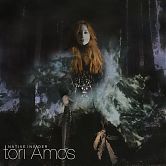
Native Invader (album, 2017)

Unrepentant Geraldines (album, 2014)
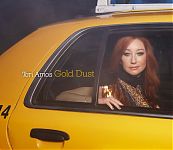
Gold Dust (album, 2012)

Night of Hunters (album, 2011)

Midwinter Graces (album, 2009)
 Abnormally Attracted To Sin (album, 2009)
Abnormally Attracted To Sin (album, 2009)
Live at Montreux 1991/1992 (DVD, 2008)
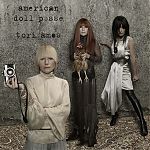
American Doll Posse (album, 2007)

A Piano (boxed set, 2006)
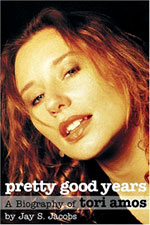
Pretty Good Years
(bio, 2006)

Fade To Red
(DVD, 2006)
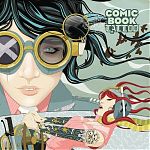 Comic Book Tattoo (book, 2008)
Comic Book Tattoo (book, 2008)News: Huffington Post Interview (September 24, 2012)
How in the world am I going to sound like a fairy on crack when I’m in my late 40’s if I smoke? No! My daughter is into blues and she asked me, “Why didn’t you ever sing blues?” And I said, “Fairy on crack can’t sing blues!” But it’s just how my voice sounds!
Noah Michelson continues his winning streak in the interview contest, producing yet another epic article. This time for the Huffington Post, he draws out a wealth of responses to questions both typical and atypical hitting on topics such as Tori’s thoughts on several songs on Gold Dust, her muses, being visited by the spirits of artists past, Little Earthquakes, Y Kant Tori Read, and drugs. A most refreshing romp that is definitely worth a close read.
Thanks to Shannon for the link!
Tori Amos On Her New Album, ‘Gold Dust,’ Drugs, Ghosts Writing Her Songs, Ageism And More
By Noah Michelson | Posted: 09/24/2012 12:17 pm EDT Updated: 09/25/2012 9:32 am EDT
In 1992 singer-songwriter Tori Amos released her groundbreaking debut album “Little Earthquakes,” which explored themes of religion, sexuality, feminism, family and love in a way no other artist had previously attempted. The album won her critical acclaim and a legion of dedicated fans and in the 20 years since then the piano prodigy, who began playing and writing songs at the age of two and a half, has continued to share her unique view of the world both on and off the stage.
On October 2nd Amos will release “Gold Dust,” a greatest hits collection celebrating the last two decades of her career. Rather than simply repackaging a handful of songs, Amos headed into the studio with the Metropole Orchestra and re-recorded tracks in order to offer a fresh perspective on fan favorites.
The Huffington Post caught up with Amos in New York City to discuss the new album, whether or not the spirits of dead celebrities still visit her to give songwriting advice, her experiences with drugs and more.
The Huffington Post: Speaking about your song “Beauty Queen,” you once said, “You are hearing this girl in that moment: She’s standing in that bathroom, watching those girls put on that lipstick… Every time you hear it, that girl is in the bathroom, putting on that lipstick. Every time.” Do you still hear the same things you did when you first recorded the songs on “Gold Dust,” or have they changed for you over the years?
Tori Amos: There are two film reels going — one is playing the conception of the piece, but the songs are a consciousness, a slice. They’re alive. When I meet them, it doesn’t mean that they haven’t been existing. I don’t how long they’ve been existing — I can’t gauge that. I know I’ve only been able to discover them and hear them because I’ve had a conversation with someone where by a portal that’s been closed opens up in my mind. Or I’ve actually experienced it and because I can feel that particular feeling and have emotional intelligence of it, then something that was closed to me opens and I can hear that girl speak. So, there are two film reels going at once — the moment of conception and the circumstances around it, and then getting to know her. And getting to know her through other people’s experiences of her. At the stage door or even in a coffee shop, people come up to me. I’m really grateful that people will come up to me and tell me their story because that is so much what my songwriting is about — and always has been. So when we were re-recording, the other “film” is people’s experiences with songs like “Winter” and also how they’ve evolved in my life.
I was going to ask you about “Winter” as it’s about your relationship with your father and your grandfather and now you have a daughter. So I’m guessing you’re coming at it from two different directions, daughter and mother.
When I was recording this with the Dutch orchestra — and what you have to remember is that never before have I recorded live with a string section. They’ve always recorded to my masters. So my emotional process has happened with an engineer and a producer, or since 1994 [when I began producing my albums on my own], Mark [Hawley, Amos’s husband and sound engineer] and Marcel [Van Limbeek, also Amos’s sound engineer]. A lot of times the recordings in the last five years have been me alone in a room with Mark and only Mark on the other side with the doors closed. And then Marcel comes in when any other musician is there, then the two of them are there. But really, I’m having a conversation with Mark. I’ve realized over the years, I’ve been able to strip down because I have those protections in place — emotionally. So the fact that the whole orchestra was there and these recordings are us having a very intimate moment — all 80 people — when I was playing with them and they were having an emotional response to the music, then I was responding to them. The pictures were changing and this was happening in rehearsals. So the pictures when we were recording “Winter” was Tash [Amos’s 12-year-old daughter, Natashya] and her dad, when she fell down on the ice in Vienna. And I remember her as a little girl falling down on the ice and him picking her up and those pictures started coming when I was recording with the orchestra and that hasn’t happened before. A valve opened up because I was forced to play it in a different way — so it was a new experience and I had a new picture.
You’ve told stories before about how songs have come to you in one take, like “Marianne” —
It took me years to learn it. I didn’t really learn it properly until I had to play it with the orchestra. It had to be notated out and it was notated to my original playing. None of the piano music has been written out, just the chords, so I had to learn it by ear. The vocal lines have been written out.
But there are also songs in your catalog that you’ve claimed were written or co-written by the ghosts of famous dead people. For instance, you’ve said that Freddie Mercury wrote “Sugar” and John Lennon was involved in writing “Hey Jupiter.” You’ve also talked about how “Yes, Anastasia” was inspired by a meeting with the spirit of Russian Grand Duchess Anastasia Romanov, who visited you when you were suffering from a bout of food poisoning. But we don’t really hear you talk about those kinds of experiences anymore. Do they still happen to you?
It still happens. I’m just guarded about it. It doesn’t mean I wouldn’t talk about it, but nobody asks me. Nobody asks me! I could never do what you do — I think being the person who can get the octopus to open up her arms is incredible. I’m the opposite of Ursula in the “Little Mermaid.” With writing, I take the tentacles and close them around the muses and the process [wraps arms around chest]. But if someone asks me, I’ll tell them. But nobody asks me! Of course it still happens. Of course. Something like that happened to me for “The Light Princess” [the musical Amos has been writing for the past several years]. The muses tapped me on the shoulder and said, “Take dictation — it’s coming in.”
Is that scary?
You must surrender. You don’t have to — but you’ll lose it. You can’t say, “Check back with me in 15 minutes.” It doesn’t work like that for me. I serve them. I don’t kid around. My daughter knows it, too. They’ve been very conscientious with Tash — they don’t intrude on her time very much. But anyone else, they don’t care.
When you say “muses” — is it particular people? Because you’ve talked about Freddie and John Lennon and Anastasia. So, it’s specific entities?
Yes. Those all did happen. They come from the other side.
Anyone in particular that you want to name drop that has been more recent than those three?
Diane Arbus.
So, since she was a photographer, did she come through in images?
No. I hear them. But I go to visual artists a lot. We shot [the artwork and the first video for “Gold Dust”] in New York in July. I was shooting with photographer Danielle Levitt and Karen Binns, my stylist, and they both had their references with the great photographers of the ’60s, ’70s, ’80s and they were paying homage to these photographers, including Diane. I was in New York and I was 48 at the time when we shot that and her death was also in July and she was 48, too. I think I was resonating with the questions she was maybe having at that time and I was immersing myself in her work. So yes, there are people who come and visit from the other side and she’s one of them. But the muses, when I speak of the muses — there’s a group.
And it’s been the same group for your entire career?
Yes.
When you say you’re more guarded now and “the tentacles are in” —
As a composer — not as a performer.
OK. But what about as Tori Amos the persona? Earlier in your career you got a lot of press for being — for lack of a better term — the “kooky” chick. And I feel like you were a lot kookier in the ’90s.
Yes, but at [the age of] 28 that can be charming. But when you have a daughter — I’ve grown with her, too, and I became a mom. And you become a woman at the circle, at the fire, that either is trapped in the early ’90s or you had that phase and — you have to be on time with your phases and accurate with your references. And at 28, that was accurate. But at 49, that is tragic. And I’m not interested in tragedy — as far as being a mother and a wife. As Tash said to me, “If you ever show a boob, I’m divorcing you. I don’t want in your will — I’m out of your will.” She and I have a pact — I just shot with a magazine and, not that they asked me to, but she said, “I don’t want to see any naked pictures of you anywhere. Ever.”
But you must think there is a double standard about older women and sexuality.
Yes. I do. I definitely do. But what I’m saying is that people make choices. I’ve carved out a career for myself really as a writer. Yes — as a performer, too. But it’s about the pen being mightier than the sword. So when you take that path, it’s different from the great diva performers or entertainers. That’s a very different thing. They are great at what they do. We both know as a fact — Johnny Depp is older than I am. But his leading ladies would never be his age. He would be lucky to have Sandra Bullock next to him! But the leading ladies next to him and Brad Pitt are normally a bit younger. Not always — it depends on the movie — but you have to look at that. Julie Walters recently said — and I’m paraphrasing — there are a lot of jobs for men her age, but not for women. And there are! You have a lot of older men — no different than Regis with Kelly. There are older men with younger women but you don’t see a lot of older women with younger men. There are some women who have been able to do it but not often.
I’ve been thinking about you because of how crazy this summer has been in terms of what politicians have been saying about women and women’s bodies. When I heard Todd Akin talk about “legitimate rape,” I wondered, What would Tori say about that?
What I hope is that the younger generation just looks at someone like that and says, “He’s ignorant and foolish. Next!” I don’t want to give too much ink to foolish men. Because, I have to tell you, I’m attracted to a man’s mind. I’m at the place where what he looks like — yes, my husband does ride a motorcycle and I love a man smelling of horsepower and leather and I can be seduced — but what I’d tell you is that I’m just not attracted to [Akin’s] mind. I don’t know many women that I would want to romance who would be attracted to his mind. So what I would say is: This is a woman’s issue. There is no place for foolish men at our fire.
When you were writing “Little Earthquakes” did you realize how groundbreaking what you were doing was at the time?
I was on a mission at the time — and there is missionary zeal in my family, but for the opposite side [laughs]. There was no one more critical of woman than my father’s mother, who was a missionary and a teacher. I mean, the things she could do to Byron and Shelley — how she could twist their words! — was shocking. So that’s what I’m saying to you — when you offer me up ignorant, small-minded men, I had a titan for a grandmother who went to university in the early ’20s. She was teaching. She was a very intelligent woman that felt that a woman gave her body to her husband when she was married, her to soul to God and I looked at her at five years old and said, “What do I get for myself!?” And she said, “Get in the corner and read the Bible.”
Still, when I listen to a song like “Precious Things” and you’re singing “So you can make me cum / that does’t make you Jesus” I still find it shocking. If someone wrote that today it would still be shocking!
But music isn’t shocking today. It’s very polite and Tash plays me all this stuff and some of it is beautiful. I think the devil has fallen asleep. He’s bored. Or he’s happy! Because he’s not being challenged. If we believe that the snake was the one that wanted the woman to have the knowledge — then the snake is very sad. But if God was the one who didn’t want Eve to have the knowledge, well, she doesn’t have a lot of knowledge right now. The library has been closed. Advertisers run radio and I like a lot of the men and women at radio — but radio is a business. So yes, there are certain stations that have more freedom than others but what I’m a little baffled by is that we’ve had such a summer, and yet — where is the art and music responding to it? I think there’s a lot exciting art going on visually — and in other places — but I’m waiting for [songs like Public Enemy’s] “Fear Of A Black Planet.” Where is that? I mean “booty” is child’s play! The people who are talking about that kind of thing… It’s, unfortunately, cliché. And it’s not challenging anyone. But those were different times and I think if you look at the people who run the music industry, they’re not necessarily looking for those types of artists. I’m not saying they don’t exist because I think they exist.
When you’re working on new music are you thinking about this kind of stuff?
Yes, but you can’t repeat yourself. You have to know how to get your point across. You have to be very aware of cause and effect and your approach will change — it must — or you’re just repeating yourself.
I think a lot of fans would be happy with you repeating yourself.
I know but I feel as if to be effective — you have to keep transforming. And what might have worked 20 years ago, it worked because it was fresh. What needs to work now — subject matter for instances. I’ve had different experiences. And before you’re a mother, you’re a very different person after you’re a mother.
You were just talking about the snake and God. Where are you currently at in terms of religion and spirituality? It always seemed to me that you favored a pagan or wiccan sensibility in that you drew on lots of different religions and approaches to create your spiritual world.
I’m not part of any kind of group. But I don’t think Jesus would be, either. I had this argument with my father when he edited my songbook. He left out “Crucify,” “God,” “Father Lucifer,” and I said, “Don’t you think someone like you was editing the gospels?” So, if we believe that he was involved in that at all, then he wouldn’t be part of any part of any spiritual group. There’s so much information out there and no different than a good chef — I’ve taken herbs from different places around the world as I’ve traveled and I’ve added some common sense. If I have a spirituality it’s probably closer to the ancient Native American spirituality.
Whenever someone talks to you about your first album, which was with the glam pop/rock band Y Kant Tori Read and was maligned — to say the least — you just sort of smirk. But I don’t think some of the songs that you’ve written since then — I’m thinking of some tracks on 2007’s “American Doll Posse” in particular — are that far off from what you did back then. Of course context is everything, but do you think that if the Y Kant Tori Read album had been a huge success, the Tori Amos who wrote “Little Earthquakes” would have eventually emerged? Was she inevitable?
No. No. In order for “Little Earthquakes” to happen I had to crawl back from where I’d been — sort of like writing “The Light Princess.” The process is similar because it’s a similar journey. I had to completely shed my preconceptions about what kind of writer I was and what kind of musician I was and what I held dear and what I wanted to achieve. And it stopped being about success and became about truth and emotion and describing those feelings — based on rejection. And both of them are like that — both projects have been so arduous. And part of that arduous process has gone into the art. All my fantasies about what I thought the music business was and what I thought about making a record and achieving success was completely shattered by the music industry’s rejection of [Y Kant Tori Read]. I’m not even talking about the public’s reception — it didn’t even really get that far. So I have a lot of acquaintances in the music industry but very few friends because I found out what that was about back then. So no illusions — and then I had to go find my musician soul. And then I had to decide what kind of writer I wanted to be. There was a time before all that, that I was on that [singer-songwriter] path and I strayed from that. But I strayed from that for all kinds of reasons. Nobody wanted to sign me doing that! I wasn’t signed for that! I was signed more for a pop/rock thing. So once that crashed to the ground I begged [music executive] Doug Morris to drop me and he said, “I’m not.” So if you ever want to ever stay on a record label, beg them to drop you [laughs].
After “Little Earthquakes” and “Under The Pink” came out you did achieve incredible success. And then you released “Boys For Pele” and you’ve talked very publicly about how unfavorably the record label reacted to that. Did you have to reset yourself all over again once you had achieved that success and suddenly they were shutting down on you all over again?
Peter Gabriel warned me — I was getting ready to record “Pele” soon — he said, “Look, you have your engineers set up. If you have that, you need to figure out a way to get one to build a studio because if you ever go a different direction from the record company, you need to make it so that they can’t grab the masters. You need to be in control of your life.” No artist is toast of the town for 20 years. It doesn’t work like that — it just doesn’t. You have to know how to be in control of your life and so that was a warning then, because he said, “You will fall out with them.” Little did I know that was going to happen in several months. So when they played “Pele” it was here, in New York City, I had gone out to dinner somewhere while it was being played and I walked into the control room and I remember looking at Mark and he gave me a look and it was a warning. It was one of those looks.
You knew instantly.
I got butterflies in my stomach. A fear. I thought they would understand, I thought they would get it — that this was the next move. You know who got it? Neil Gaiman got it. He tried to tell my manager at the time, “This is the reason she will have a career — this is the reason she will stay.” But I have never had a work after I had success be met with such ostracizism and coldness. The only person who embraced “Pele” that night was from the classical department. There was a guy from the classical department who said “I get this!” [laughs]. And, the guy who mastered it, Bob Ludwig, he really got it. But it took the public — without the public embracing the record it would have been completely shut down. The record label did very little for it.
But did that shake you at all — your confidence as a writer or an artist? It must have screwed with you somehow.
We were getting ready to tour and we had a big tour lined up and the reviews were coming in and they were mixed. And at a certain point somebody said to me, from the press side, “Don’t read the reviews. It’s none of your business. Go to your think tank, you’ve got intelligent people, but you’ve got to play this one out.” Somebody from the Native American side said, “You either trust your muses or you don’t. Let it get out there.” This is before the Internet really took off. So I had to go out there town by town. Town by town. And the people came.
I love that line, “It’s none of your business.” You had done what you needed to do.
At that point, it’s too late. You either know your own mind or you don’t. And so what? Just because a bunch of journalists don’t get it, that makes you question your own mind? How frivolous is your own mind, then? Yes, you can be shaken because you think, Did I convey what the muses wanted me to? I remember the tour started in the UK and there were some very dark days. But people were coming to the shows and the shows were keeping me alive — it was the live shows that were fueling me. But it was a very tough time. And yet, we got to Boulder [Colorado, 1996 site of two of Amos’s most beloved live performances] and that whole experience.
Can we talk about drugs?
Yeah! [Laughs]
I know that you’ve been a fan of drugs, or at least you talked about them earlier on in your career and maybe — like spirits visiting you from the other side — it’s just something you haven’t talked about because no one asks you anymore. But [1996’s] “Father Lucifer” came about after you took a spirit journey on a hallucinogen and you’ve talked about pot —
But all pot ever made me want to do is call one of my many lawyers!
Why?
Because it’s just what it made me want to do! Although, a group of us came up with a really good game called “Pocono Ferret To Ferret” [laughs].
What the hell is that?
What you had to do is assign a word for a different word. Pocono was “I” and ferret was “love,” so “Pocono ferret to ferret” was “I love to love.” [Laughs]
This was a game you played when you were high?
On the back of the tour bus. But I took blow backs — are you kidding? My voice! I’m a singer! How in the world am I going to sound like a fairy on crack when I’m in my late 40’s if I smoke? No! [Laughs] My daughter is into blues and she asked me, “Why didn’t you ever sing blues?” And I said, “Fairy on crack can’t sing blues!” But it’s just how my voice sounds!
But drugs weren’t really a part of music making for you?
No, because you have to be in control. But it gave me visions. It was [the hallucinogen] ayahuasca — and mushrooms. Ecstasy scared me.
But you did it?
Yeah. But never blow. Never “Mr. Grim” — grim nasty. Because it didn’t treat me.
Did you do ayahuasca more than once?
Oh, yes. Many, many times.
Did other songs ever come from those visions?
Portions. Moments. But not the music. It’s the visions. Drugs don’t give me the music. They can give me a visual. But you have to understand — and this is very important if we’re going to talk about this because we can’t be casual about this conversation — drugs aren’t casual. If you’re going to do it — there was a purpose and the purpose was to try and get to something that I might have been blocking. It got me to portions but it didn’t get me to the hardcore stuff — that had to come through different experiences. But with ayahuasca it was approached as — you fasted for a day and there was a group of us that would meet with someone that was running [the situation.] You would work for a week beforehand and write about what you were hoping to work through and you would write what you were hoping to achieve. And then you got back together the next week after you’d done it —
So it was structured.
It was very structured. This was in the late ’80s. The back of the bus blow backs, that was only once in a blue because with my schedule having to get up and do early morning radio and do a two-hour show or in those days doing doubles — no, no! A little grape whispering was going on because there was always a nice Bordeaux, but very civilized. And never do I take a sip of anything before going on stage. Never! Maybe singers can do that, but players? To play? You’ve got be on! And it changes your time and too much coffee changes your time. I know there were some jazz musicians that would do it but that’s when you’re doing improv — maybe. But [going on stage under the influence of something] is just the scariest idea ever. Ever! That scares me.
Welcome to Tori Amos’s nightmare.
Yeah — me out there falling off my piano stool. I’ll fall off my piano stool because of my heels or something is happening but falling off because you’ve ingested something — that’s a sin against your art. So taking drugs in the wrong way, so that you can’t play, that’s a sin against your art.
“Gold Dust” hits stores and iTunes on October 2nd. To pre-order the album, click here. For more on Tori Amos, including upcoming tour dates, visit her official website here.


